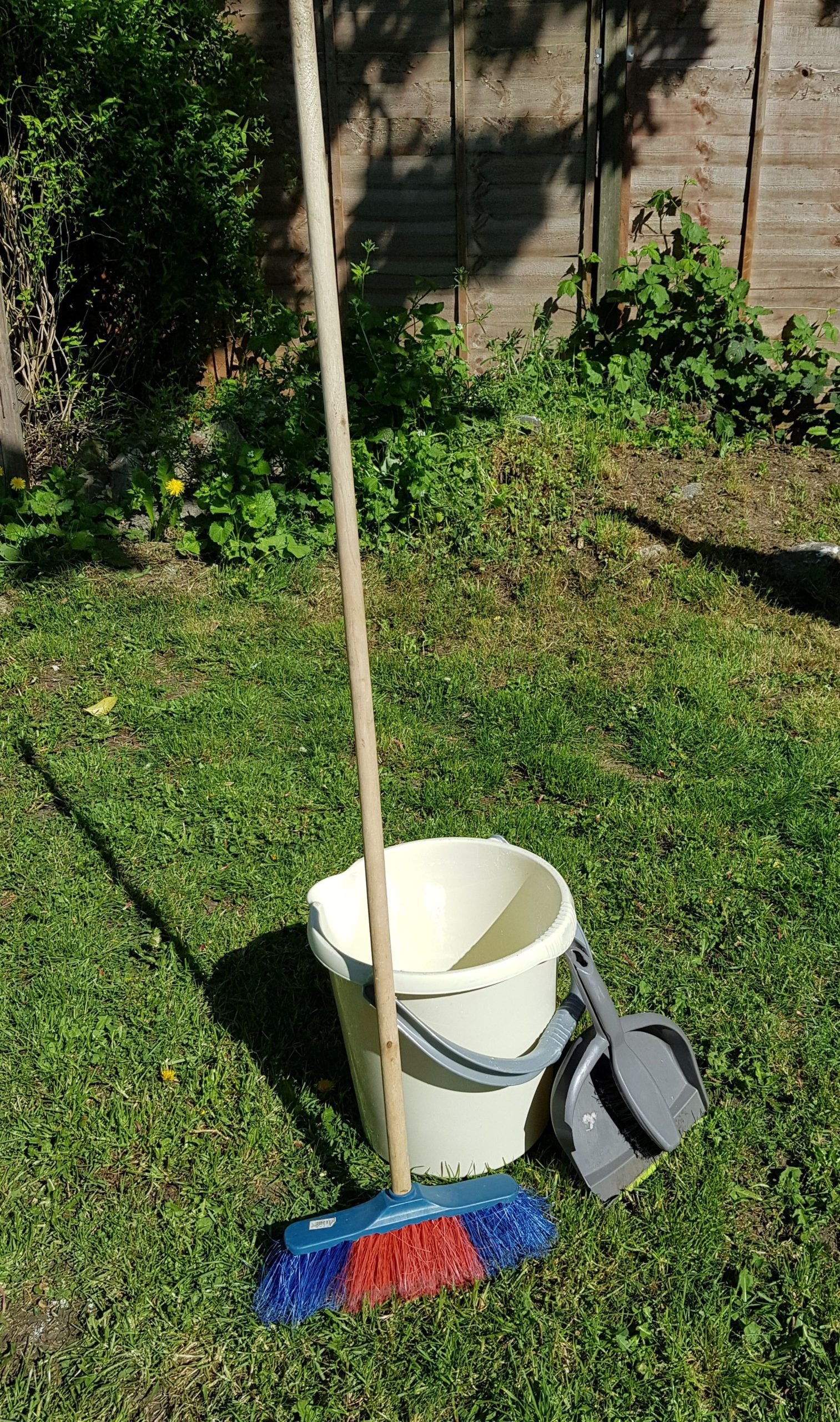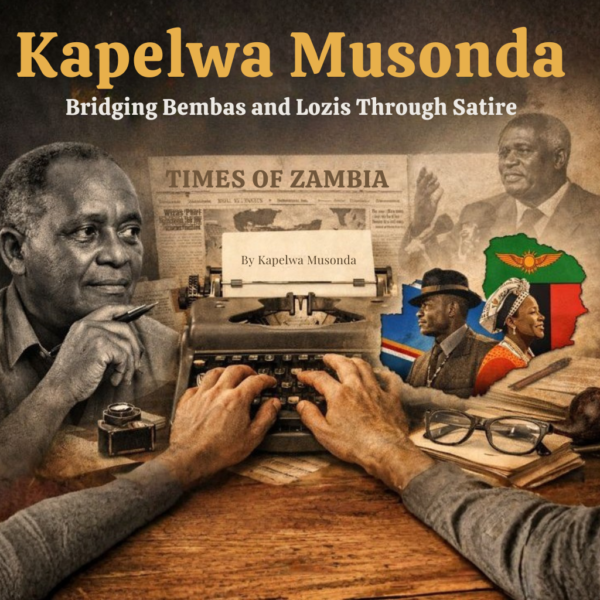By John Katebe
The current lockdown is a positive measure meant to prevent the spread of coronavirus. It has, however, disrupted some aspects of our life.
From the time that my wife and I entered holy matrimony, we have relied on the services of a maid to help with housework. Additionally, we have always employed a garden boy to take care of the yard.
When both of us were no longer in employment, we decided to reduce the number of days in a week that the helpers would report for work.
Now with the lockdown, we can no longer enjoy the services of our maid because, apart from confining my family to our home, the lockdown has also confined our maid to her home. So for the first time in our life, we have to do our own house cleaning.
The realization that the lockdown could be protracted caused us to start thinking about how to manage the housework without being overwhelmed by the process.
For advice, I turned to a friend’s daughter who had lived in England for several years. She recently returned to Zambia to look after her ailing dad. The idea of asking advice from someone who has lived overseas was premised on the widely accepted view amongst us that white people are superior to us in the way they manage their lives.
I have fictionalized my friend’s daughter’s name and circumstances to avoid embarrassing her relatives and close friends.
My friend’s daughter, Rita Gondwe, had previously worked as a nurse in a mine hospital in Kitwe. Her husband, Peter Chali, was a senior lecturer in the School of Business at the Copperbelt University. When the University sponsored him to study for a PhD degree in Business Administration at a British University, Rita decided to resign from her nursing job and use all her savings to travel to England with her husband.
She eventually secured a nursing job in a hospital in London. When it was time for her husband to return to Zambia, Rita opted to stay behind in England. This effectively marked the end of her marriage to Peter.
The health of her father in Zambia had recently deteriorated to a point where he needed someone to look after him. His wife, Rita’s step-mother, died from hypertension last year. Rita decided to return home to look after her dad because she was the only living relative with the means to do so.
I wanted to learn from her how she managed to do her housework during her time in England. Did she have a maid to do her work? If not, what equipment did she use to lighten her house cleaning load?
What I learnt from Rita about the issue of maids in England and the general standards of cleanliness in the English home came as a shock to me. In this write-up, I will restrict myself to what Rita said about the subject of maids.
Rita told me that she didn’t have a maid as it is very expensive to hire one in England. Virtually, nobody in the UK hires a house cleaner except royalty, the mega rich and the elderly infirm in wheel chairs.
She said that it is very common to see a 90-something elderly woman or man doing their own loan, garden, house cleaning, cooking, etc.
I asked her why the services of a mere maid could be so expensive to hire. Rita explained that the labor laws in the UK are quite stringent.
She went on to say that interestingly enough, some people from the diaspora who have tried to navigate the cost issue by bringing relatives or maids with them from Africa to help with house chores, including child care, have ended up in courts and even in prison for hiring slave labor.
I exclaimed, “That is preposterous! How can you penalize someone for using his own relative to keep the house clean while they are enjoying free meals and the luxuries of living in England?”
Rita remarked, “Most of the behaviors that we consider normal in Zambia are considered criminal in England.”
She continued, “For instance, in Zambia, it is an acceptable and common practice to get a relative from the village to come and help with house work. In the UK that is a No! No! It is a criminal offense.”
A thought hit me as Rita spoke. Surely, a time would soon come when it would be just as difficult to hire a maid in Zambia as it is in the UK. The world being a global village, what happens in one country will eventually be the case in every country.
The present coronavirus is an example of this. In the distant past, when the world was not as connected as it is, the coronavirus disease would have remained a Chinese problem.
I realized that we have to be prepared to survive without help from maids in the not too distant future even without the restriction of the lockdown.
In any case, I wondered, how did Zambian households get into the culture of employing maids to help with the housework?
I remember growing up in Kitwe’s Chamboli mine township in the 60s. The idea of maids was non-existent. House work was either done by wives or one’s non-school going dependents.
It was traditional those days for Zambian workers on the Copperbelt to go back to their home villages to marry women whose main duty in life was to bear children and to care for the home. My mother was an example of such a wife.
At the time of her marriage, my mother was in Primary School at Chipili Mission School. According to the teaching staff at the Mission School, she held great promise for further education. The missionary teachers made my father promise not to disrupt her education. However, this was an impossibility under the prevailing culture among Africans. My mother was never to see the inside of a school again. So she reluctantly filled the bill of a full-time house wife.
With time, however, some women brought up on the Copperbelt and given an education by their parents started to find work as school teachers and as typists. Because they could speak some basic English, some of them found jobs as house servants for white folk.
A breed of men who started to marry for love departed from the culture of getting wives from their home village and opted instead to marry these working women. One’s home village was no longer regarded as a place to find a wife but a place to find young female relatives to do the house work while their wifs was away at work.
However, in most cases, when these village girls tasted town life, their interest turned to the pleasures that town life offers. They became entangled in relationships with working men as a passport to affording the good things of life. Unfortunately, these relationships usually resulted in unwanted pregnancies and condemned them to lives of desperation and want.
Working class Zambians began to accept offers of help from girls in the neighborhood in exchange for tokens of appreciation in the form of food, clothes and, occasionally, money. These were mostly girls who had dropped out of school and were totally dependent on their guardians for survival.
As time went by, it was observed that money acted as the most effective motivator for acceptable standards of performance among casual domestic workers, and its withdrawal or suspension proved to be the best disciplinary measure.
Soon, it became a norm to offer a fixed monthly fee for the services of a maid. The fee fluctuated according to the employer’s kindness and the negotiating skills of the maid. All this was an informal arrangement which was in most cases abused by the employer.
Recently, however, the Zambian Government regularised the conditions of service for domestic workers. The conditions include maternity leave, entitled leave, transport allowance, pension(NAPSA), and PAYE remittances to the appropriate statutory body.
It is already proving difficult for domestic employers to honor these obligation. In most cases, some kind of informal arrangements have been entered into between the employers and the domestic workers that largely favor the employer. The domestic workers are too desperate for paid work to bring these contraventions of the law to the attention of appropriate authorities.
Rita’s revelation about the situation regarding workers in the UK has been a wake-up call for my wife and me to get prepared for an existence devoid of hired domestic workers.
I can imagine my children saying to their children sometime in future, “In our time, life was good. We could afford to hire full time-workers to help with our house work.”



Interesting topic
One issue that is not correct here is about Zambians taking relatives to the UK as 🏠 house maids
Anyone can bring relatives into the UK so long as they are not indentured servants which is illegal
No one wants so called slavery in the 21st century but there is a difference with a free person going to the UK as a maid with the correct paper work.
Sadly too many rich people exploit their relatives
God warns about all this in James 1 to 4. Bible
Shalom
Dr Banda